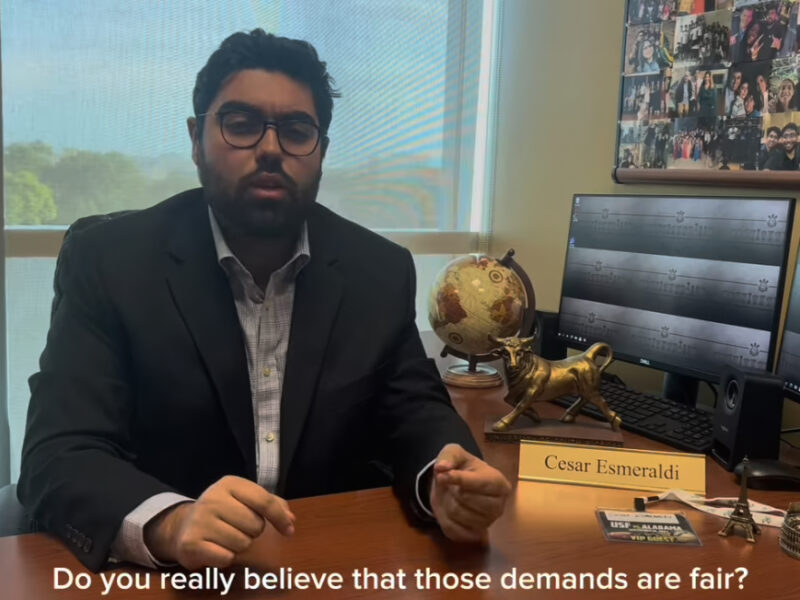Above photo: Eric Eyre, a Pulitzer Prize-winning USF St. Petersburg alumnus, speaking to a small class of journalism students on Thursday. Since graduating in 1998, he’s juggled daily assignments with big projects at the Charleston Gazette-Mail. His advice to young reporters is to stick around smaller newspapers, just for a little bit, because it’s hard to drop in and out and have much of an impact. Timothy Fanning | The Crow’s Nest
By Timothy Fanning
After Eric Eyre graduated from USF St. Petersburg with a master’s degree in mass communication, he took a job at a newspaper in Charleston, West Virginia, and quickly found it to be a place where he could do “big things in small places.”
At the Charleston Gazette-Mail, a daily with a circulation of 37,000, Eyre, 52, balanced investigative projects with his daily work as a statehouse reporter.
In 2016, he exposed the flood of opioids flowing into depressed West Virginia counties with the highest overdose death rates in the country. That effort won him the 2017 Pulitzer Prize for Investigative Reporting.
Unlike the New York Times and Washington Post, the Gazette-Mail cannot free up reporters for months at a time to pursue promising leads.
He estimates he writes more than 250 stories per year and still covers the night cops beat once a month.
“We don’t have a data desk, we don’t have an investigative team,” Eyre told an audience of nearly 50 in the Harbor Hall Community Room on Thursday. “We break, we scowl, we hide from the bosses to avoid lousy assignments. We grimace when we pitch a blockbuster story to our editor and get the response, ‘Can I have that for Sunday?’”
Eyre spent the day on campus, speaking to classes and chatting with students about work in journalism.
To Eyre, big projects are “just like gravy” and come about as a result of years grinding it out as a beat reporter doing investigative projects on the side.
For years he toiled in the trenches, scraping with school board officials, city council members and county commissioners.
In Eyre’s nearly 20 years at the paper, he’s covered education, health, business and state government and legislature, all of which, he says, prepared him for the most important story of his career.
In a series of articles that covered some three years of work, Eyre disclosed that drug wholesalers unloaded 780 million hydrocodone and oxycodone pills into the state over a six-year period, during which 1,728 West Virginians fatally overdosed on the medications.
A native of Broad Axe, Pa., Eyre graduated from Loyola University in New Orleans and received a master’s degree in 1998 from USF St. Petersburg while on a Poynter Fund Fellowship.
There, he quickly impressed his professors with his writing abilities and interest in telling stories that impact ordinary people.
“The program was a great learning ground for me,” Eyre said. “The three former journalists- turned-professors had us out of the classroom and on the ground covering local politics.”
A husband and a father, Eyre spends his spare time collecting investigative reporting books and portable manual typewriters, much to the chagrin of his wife, who doesn’t like “musty and old eBay typewriters showing up at her house.”
For some, winning the Pulitzer Prize can be life-altering, and many move on to more prestigious newspapers. Not Eyre, who said the newspaper gives him a lot of freedom to do in-depth investigative work.
The Gazette-Mail, like a lot of small, local newspapers, has a hard time keeping young journalists. They tend to stay only a year or two.
His advice to young reporters is to stick around smaller newspapers, just for a little bit, because it’s hard to drop in and out and have much of an impact.
“You have to pay your dues before you get the good stuff,” he said. “After a year, your stories get better and your sources begin to trust you.”
This story was updated at 7:52 p.m. on January 26, 2018.



